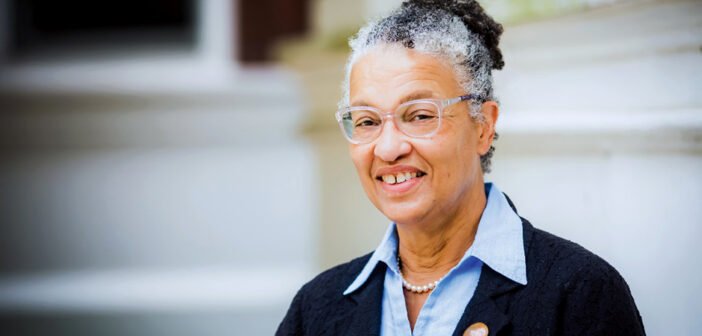Jennifer Swann, professor of biological sciences, was recently named the newest Lehigh ombudsperson.
An ombudsperson or ombud is a position appointed to resolve conflicts between students, faculty, staff and administrators in the Lehigh community.
Anne Meltzer, professor of earth and environmental studies, is also an ombudsperson at Lehigh.
What does an Ombusperson do?
Meltzer said that there are two primary functions of an ombudsperson. One is to observe the community and individuals that work or go to school at the university. The second is to help make the institution a better place for the people associated with it.
Swann said the purpose of the Ombuds Office is to facilitate discussion and address systemic problems within the Lehigh community. Ombudepersons are independent from the university administration and can offer a course of action to resolve academic or non-academic concerns. Ombuds observe trends and report policies and procedures that may be unfair or not implemented, she said.
“The role of the ombuds is to address structural inequalities,” Swann said.
How can you use the Ombuds Office?
The service is available for Lehigh students, staff and faculty to discuss grievances with each other or with the university.
The Ombuds Office provides a place to discuss issues about campus administration, policies and workplace disagreements. These issues could be a miscommunication between parties, perceived unequal treatment, policy confusion and other issues relating to the Lehigh community.
Meltzer said that there are four principles that guide the actions for ombuds: confidentiality, independence, impartiality and informality.
“Our conservations are completely confidential,” Meltzer said. “We would never take action on someone’s behalf unless there was an agreement with that person.”
The ombuds do not disclose conversations they have, but may suggest courses of action or who to talk to resolve the issue.
“We’re not advocates,” Meltzer said. “We’re there to listen and understand.”
The ombuds collect information in order to address campus issues and unfair policies and procedures, Meltzer said.
The ombuds try to remain ahead of problems boiling over by analyzing if a certain policy or procedure causes common issues, Meltzer said. They observe these trends and report to campus administrators their findings.
“Independent of their individual circumstances or issue, we see trends,” Meltzer said. “Sometimes these trends are what put the institution at risk.”
Grievances can be discussed and a formal report is not necessary. The Ombuds Office is not a part of the formal reporting process at Lehigh and other offices.
How do I contact an Ombud?
While the ombuds are appointed by Lehigh, they are a neutral third party in conflict negotiations. Students and faculty can contact both ombuds directly instead of scheduling through an office. Their contact information can be found on the Ombuds Office website.
There is no physical ombuds’ office, but ombuds can be accessible by email or phone call. To start resolving a conflict, reach out to the ombuds over email or phone call. Once the process of resolving a conflict is in place, ombuds are available to talk over email, phone, or can meet in person.
“Our office is an informal part of the process,” Meltzer said. “We’re there to listen and help people resolve their concerns and issues.”
Ombuds deal with various conflicts between parties where there is a disagreement, but Swann said if there is any case of physical harm, it does not fall within The Ombuds Office.
Violence or harm should be reported to the Lehigh University Police Department or Title IX Coordinator Karen A. Salvemini. The Ombuds Office may suggest an individual reach out to these resources.






Comment policy
Comments posted to The Brown and White website are reviewed by a moderator before being approved. Incendiary speech or harassing language, including comments targeted at individuals, may be deemed unacceptable and not published. Spam and other soliciting will also be declined.
The Brown and White also reserves the right to not publish entirely anonymous comments.
1 Comment
Good info.
“Our conservations are completely confidential,” Meltzer said. Takes me back to when Amos and Andy were on TV and the Kingfish made such statements. The fact that he knew 50 cent words when penny words were adequate indicated intelligence. The word “talks” would not have led to this humorous error. Proofreading trumps spellcheck.